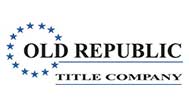In Florida, real estate investors are constantly dealing with different types of taxes. There are property taxes, documentary transfer taxes, property transfer taxes, and other property-related fees.
However, Section 1031 of the Internal Revenue Code offers a solution for investors who want to avoid paying thousands – sometimes hundreds of thousands – of dollars in capital gains taxes.
In this article, you will discover how it is possible to utilize a 1031 exchange in your favor when selling real property in Florida.
1031 Exchanges in Florida – The Basic Concept
Section 1031 of the Internal Revenue Code provides that:
“No gain or loss shall be recognized on the exchange of real property held for productive use in a trade or business or for investment if such real property is exchanged solely for real property of like-kind which is to be held either for productive use in a trade or business or for investment.”
Accordingly, the IRS does not recognize financial gain or loss on a property sold when the proceeds resulting from the sale are used to purchase another investment property with similar characteristics for the same purpose.
Essentially, a 1031 exchange permits real estate investors to “swap” one investment property in Florida for another.
In layman’s terms, an investor can sell one of his properties and use the money obtained in the deal to buy another, but without having to pay capital gains taxes.
1031 Exchanges in Florida – Choosing a Reliable Intermediary
Also, Section 1031 of the Internal Revenue Code provides that no investor is allowed to access the money gained with the sale of a property to attain a 1031 exchange.
Consequently, to access the money to buy the replacement property, the investor will need to rely on a qualified intermediary. A qualified intermediary can be either a person or an entity that will facilitate a 1031 exchange under what is established by IRS regulations.
The intermediary will obtain temporary possession of the funds obtained in the property sale while the investor is purchasing the replacement property.
The choice of a reliable intermediary is the core of a 1031 exchange. In case an untrustworthy intermediary fails to fulfill its duties, the 1031 exchange will also fail.
At Marina Title, we offer qualified intermediary services to hold the proceedings of a property sale on behalf of customers, helping them to secure the funds and complete the 1031 exchange.
1031 Exchanges in Florida – What is a Like-Kind Property?
Once an investor has chosen an intermediary, the IRS gives him/her a fixed period of 45 days to choose prospective “like-kind” properties. The countdown starts from the date of the sale of the original property.
The term “like-kind” property is not defined under the Internal Revenue Code. Plus, the IRC Section 1031 does not limit the concept to a specific type of real property.
In Florida, legal experts consider that any property can be defined as a “like-kind” property as long as it is held for investment or business purposes. In this context, the purpose of a property is more important than the quality of the property.
Consequently, the concept of “like-kind” property encompasses a wide array of real properties, which includes vacant lands, rental properties, retail properties, storage unit properties, industrial properties, office buildings, assisted living facilities, resorts, hotels, etc.
Despite the non-specific definition of “like-kind” property, the property with which the investor will replace the one he/she sold must be of the same class, nature, or character.
While executing a 1031 exchange in Florida, the investor has the option to choose up to 3 distinct properties during the 45 days, with no specific limit on value.
Nonetheless, if the investor decides to choose any properties beyond those chosen before, the value of the property cannot be higher than 200% of the value of the original property that was sold.
1031 Exchanges in Florida – The Closing Process of the Replacement Property
Once a 1031 exchange process begins, the investor has the exact period of six months (180 days) to close on the replacement property.
A six-month period may seem like a long time to most people, but for real estate investors, it is not so simple. In case a 1031 exchange fails to be completed within the 180-day threshold, the whole process is deemed invalid.
Do You Want To Ensure a Successful 1031 Exchange in Florida? – Work With Marina Title
At Marina Title, our team of expert attorneys will clarify all the complexities associated with the IRC Section 1031, also acting as qualified intermediaries to secure your investment funds and ensuring everything is in place at the closing date.
Waste no time with uncertainty. Call us today at (855) 513-5880 or email us at Info@MarinaTitle.com to schedule a consultation.















